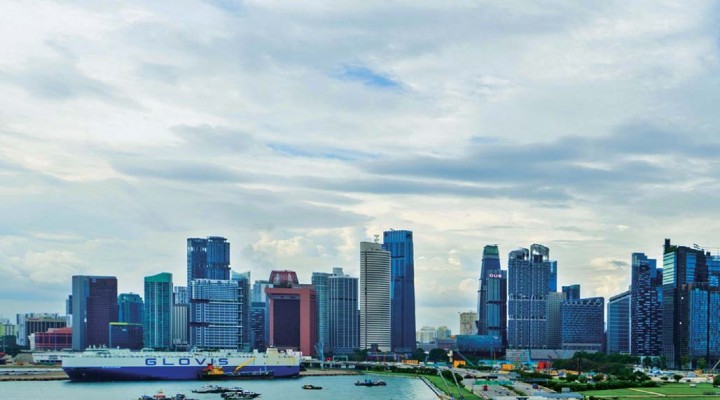Singapore: The spirit of policies past, present and yet to come
SINGAPORE (Jan 14): This year marks 200 years since Stamford Raffles landed on an island located between Peninsula Malaysia and Java. Raffles established the free and open port of Singapore by treaty, and since then the island state has flourished into one of the richest economies in the world.
Yet, even as its wealth and success grows, the country’s leaders are faced with pressing challenges that cannot necessarily be solved by money alone. Take, for example, the free and open port, which has developed into a global centre for trade and financial services. While it has thrived for the better part of the last two centuries, its raison d’etre is now its vulnerability. Changes and interruptions in global economic activity, whether as a result of the standoff between the US and China or an overall slowdown, have an impact on its growth.
To be sure, the government is cognisant of the risks and has taken pains to diversify the economy’s growth drivers. There is a focused push towards technological innovation, as well as leveraging legacy strengths to maintain competitiveness. But apart from the significant investments made by the government, a successful pivot would also require the ingenuity and daring of its citizens to take risks and explore new ideas, even and especially without a safety net.
On the home front, some policies that have served the population well are also due for a change. In the early years following independence, the government made homeownership a fundamental tenet of public policy. As homeowners, Singaporeans would be economically and psychologically rooted to the country. Government-built and subsidised flats, some comparable to private developments, now house more than 80% of the population. Some of them have even been resold at million-dollar price tags, enabling the sellers to reap handsome profits.
Indeed, overall rising asset prices over the last three decades have helped scores of Singaporeans, and others, make tidy profits and comfortable nest eggs. The challenge now is to ensure the subsequent generations of Singaporeans enjoy the same, if not better.
The public housing policy is presenting the government with another challenge. In theory, the value of a 99-year leasehold flat would start to decline as the lease reaches its end, and the government has the right to repossess it with zero recompense. Yet, everybody was shocked when this fact was recently explained to them. That is partly because, on a number of occasions, the government has selectively acquired ageing flats from their owners and compensated them, including allocating them a new flat being built nearby. This has happened to only 4% of all government flats ever built, according to the minister in charge. But, people have come to expect precisely that, and many have had no qualms plonking down large sums of money for flats on the second half of their lease.
It may take a while for people to let go of the idea that a flat, even one on a short lease, is an asset with ever-increasing value, or a home to be handed down the generations. In the meantime, the government is now offering to buy up whole precincts so long as its residents have voted so.
Another domestic area that is leaving the government in a bind is healthcare. The realities of an ageing population and rising costs of doing business — land and labour chief among the expenses — are colliding with a healthcare industry that has been extremely successful commercially. Private providers of healthcare services have prospered, even as Singapore touted itself as a medical tourism hub for the well-heeled from neighbouring, less developed countries. Medical bills have ballooned even as the government has introduced various subsidy schemes to help lower them for the poorer segments of the population.
Still, government subsidies are not the only solution to helping people manage their medical bills. In any case, healthcare expenditure is up for everyone: patients, the government, service providers and even insurers, which declared nearly $400 million in underwriting losses in 2017, and proceeded to hike consumers’ policy premiums.
Healthcare ought to be a public good and, in that context, some industry experts say the government ought to be taking firmer control of it before price inflation worsens. There is at least one way to do so: have clear limits on what doctors and hospitals can charge for consultations and procedures. Smaller bills, smaller claims; lower premiums, lower subsidies. Of course, it would also mean smaller profits for healthcare companies and lower returns for investors. Are the operators saying the cost of land to build a medical facility is too high? Have special price concessions for such facilities then.
After all, higher public expenditures would also mean the need for higher taxes. How prepared are taxpayers for that?
Also this year, all eyes are on a particular group of ministers. The leadership transition process has begun, and the incoming crop certainly have their work cut out for them.
Source: https://www.theedgesingapore.com/spirit-policies-past-present-and-yet-come


 Thailand
Thailand




